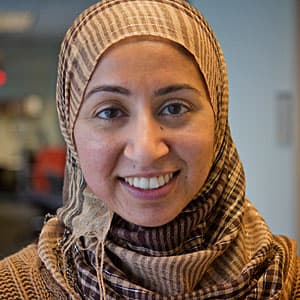Advertisement
Despite Diverse Field, Tradition Prevails In Boston Mayoral Preliminary
ResumeThere's a lot of talk about the "new Boston" these days.
The most recent Census data show a majority of the city's residents — 53 percent — are minorities. But after this week's preliminary mayoral election, some Bostonians say the new Boston looks a lot like the old one, with two white, Irish-American men — state Rep. Marty Walsh and City Councilor John Connolly — now battling it out to become the next mayor.
A Changing Conversation
The preliminary election gave Boston voters the most diverse field of mayoral candidates in the city's history. Six of the 12 candidates were white, one Latino, one Cape Verdean, and four African-American.

But at the end of the day, tradition won: Two Irish-American men came out on top and any hope the city would elect its first minority mayor was put on hold.
"In many ways, it's still an old Boston. It's new and not new," candidate John Barros said on election night. He finished sixth. "It's a majority-minority city, but only in population, not in political activism."
While black, Latino and Asian voters are increasing in number, they're still not a majority of the electorate. An article in CommonWealth Magazine suggests that's because a number of them can't vote: they're immigrants or under the age of 18.
But some say it seems strange that Boston — a city that prides itself on its progressive politics — is one of only two major cities in the northern U.S. that has not elected a mayor of color.
That makes the Walsh-Connolly duo hard to take for Barros campaign adviser James Hills.
"Because the implication for me with these two at the top is just that it's the same old thing, two white men that had this wonderful war chest," Hills said.
But many — including Charlotte Golar Richie, who finished third in the preliminary — say even with two white men at the helm, the conversation in Boston is changing
"White people feel that they have to represent people of color, that's a good thing," Golar Richie said. "White candidates felt they could make a case that they could be equitable in their treatment of neighborhoods and people and all that. It was a whole different campaign than what you would have seen 20 years ago."
Robert Allison, a professor at Suffolk University who has written about the city's history, says there was a time in the not-so-distant past when ethnicity dominated Boston's political scene. He says those identity politics aren't a reality anymore.
"You can’t get elected in Boston without appealing to a broad coalition of people," Allison said. "You’re not just going to get elected by West Roxbury or a community that is predominantly white simply saying, 'Vote for me because I'm like you.' "
Which also means the Irish-American politicians of a generation ago are not the same as the Irish-American politicians we're seeing today.
Barros says the two finalists are now talking about different parts of Boston because of the candidates in the preliminary election.
"It’s not just about who’s sitting in that office in January, it’s about who they’re bringing with them."
Alejandra St. Guillen, executive director of Oiste
"John Connolly was here talking about the violence. How we might, as a city, need to think about how we're valuing different lives, particularly that of African-American and Latino children," Barros said. "It's a different conversation than John started with on this campaign. So that's changed and that means that community is present."
In order to win in the general election, the candidates will need to absorb votes that went to candidates of color in the preliminary. And that's a big pool. For example, in one ward in Roxbury, Walsh and Connolly each received less than 10 percent of the vote in every precinct.
"We didn’t get the results that we wanted but I feel it’s absolutely clear that neither the Latino vote nor the African-American vote nor the Asian vote could be ignored," said Alejandra St. Guillen, executive director of Oiste, a Latino advocacy group that endorsed Felix Arroyo for mayor. "And it’s not going to be ignored in the general election for sure."
St. Guillen says Oiste hasn't decided whether it will endorse a candidate in the Nov. 5 election, but regardless, she says, the group will urge Latinos to vote.
"Because it’s not just about who’s sitting in that office in January, it’s about who they’re bringing with them," St. Guillen said. "And if the Latino vote and the African-American vote and the Asian vote is there, we can demand that people that look like us are into those positions and I think that there is real power in that."
St. Guillen says all this focus on the "new" and the "old" feels simplistic. Because for her the new Boston isn't just about who's in charge at City Hall. It's about changing the culture of the city.
And in that way, many say Boston is on the right path.
This program aired on September 27, 2013.
